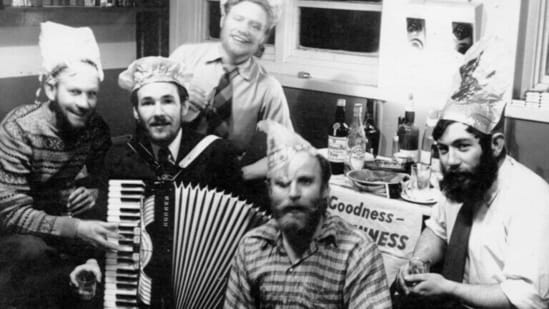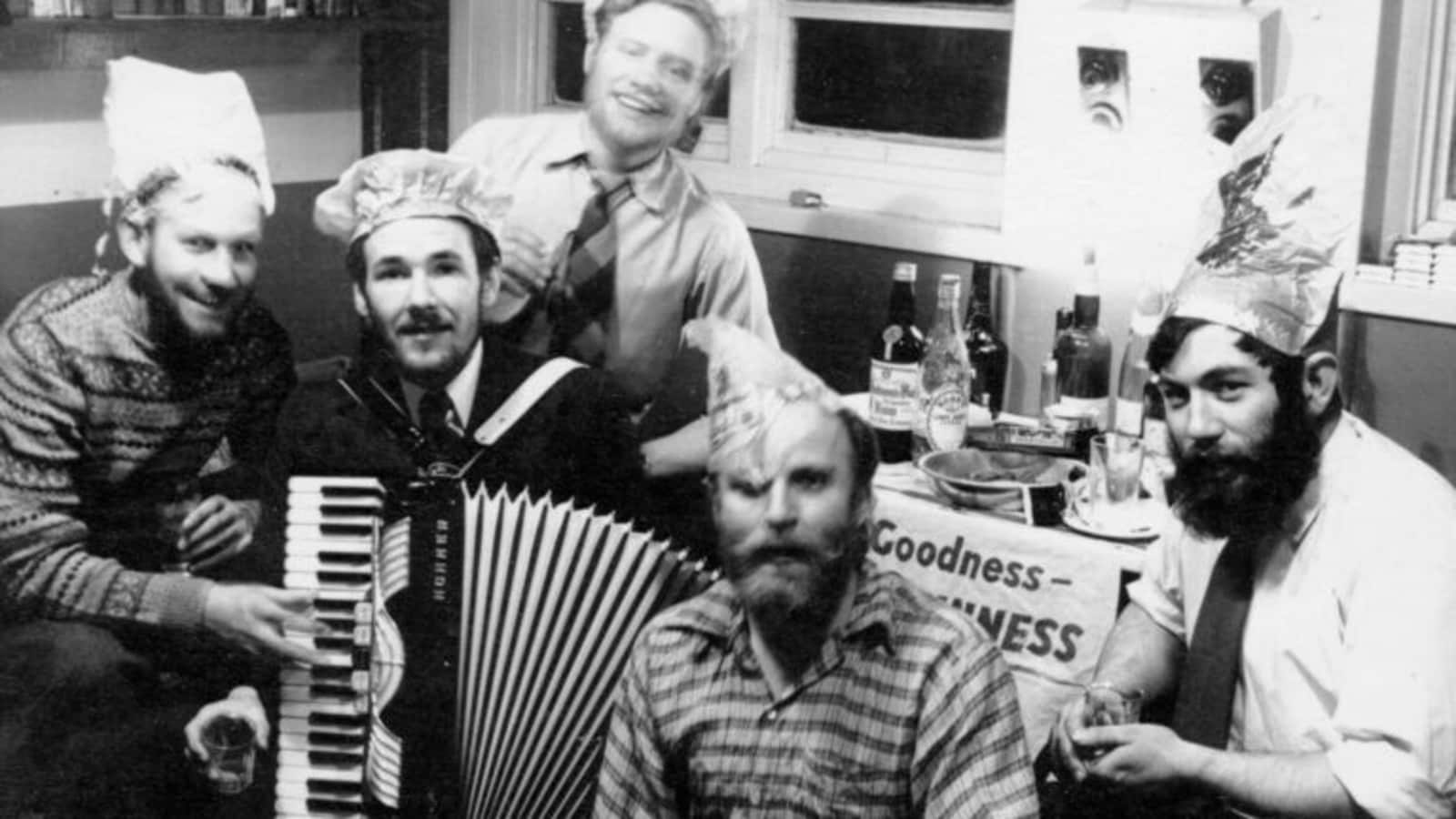A 25-year-old British man who died in an accident in Antarctica in 1959 has been found 65 years later inside a melting glacier. The man, identified as Dennis Bell, had fallen into a crevasse while working for what is now known as the British Antarctic Survey.
 Dennis Bell (far right) celebrated Christmas at the British base in Antarctica in 1958.(British Antarctic Survey.)
Dennis Bell (far right) celebrated Christmas at the British base in Antarctica in 1958.(British Antarctic Survey.)
His remains were found next to a radio, a wristwatch and a pipe by a Polish Antarctic expedition in January. The discovery came as a shock to his family, including his brother, who had given up on ever finding his brother.
“I had long given up on finding my brother. It is just remarkable, astonishing. I can’t get over it,” David Bell, 86, told BBC News.
Professor Dame Jane Francis, director of the British Antarctic Survey, praised Bell as a brave member of the Antarctic exploration team who contributed to early science and the legacy of polar research.
His brother recounted the moment they received the horrific news over six decades ago.
“The telegram boy said, ‘I’m sorry to tell you, but this is bad news’,” he said. He went upstairs to tell his parents. “It was a horrendous moment,” he added.
Who was Dennis Bell?
Dennis Bell, nicknamed “Tink,” was born in 1934. He worked with the Royal Air Force while training as a meteorologist. In 1958, he joined the Falkland Islands Dependencies Survey to work in Antarctica.
On a two-year assignment at Admiralty Bay, with 12 men on King George Island, his job was to send up meteorological weather balloons and radio the reports to the UK every three hours.
He died on a surveying trip when he fell through a crevasse. Attempts were made to rescue him. His partner, Jeff Stokes, dropped a rope to let him grab and be pulled out, but once he got to the top, it snapped, and he fell again. When Stokes called to him, he did not respond.
Found 65 years later
In January this year, a team of Polish researchers stumbled across bones on loose ice and rocks. Others were found on the glacier surface. As snow fell, they put a GPS marker to return later and bring their “fellow polar colleague” home. A team of scientists made four trips to collect the remains.
Bell’s brother will travel to England along with his sister to bury the remains. “I’m just sad my parents never got to see this day,” he said “It’s wonderful; I’m going to meet my brother. You might say we shouldn’t be thrilled, but we are. He’s been found – he’s come home now.”

